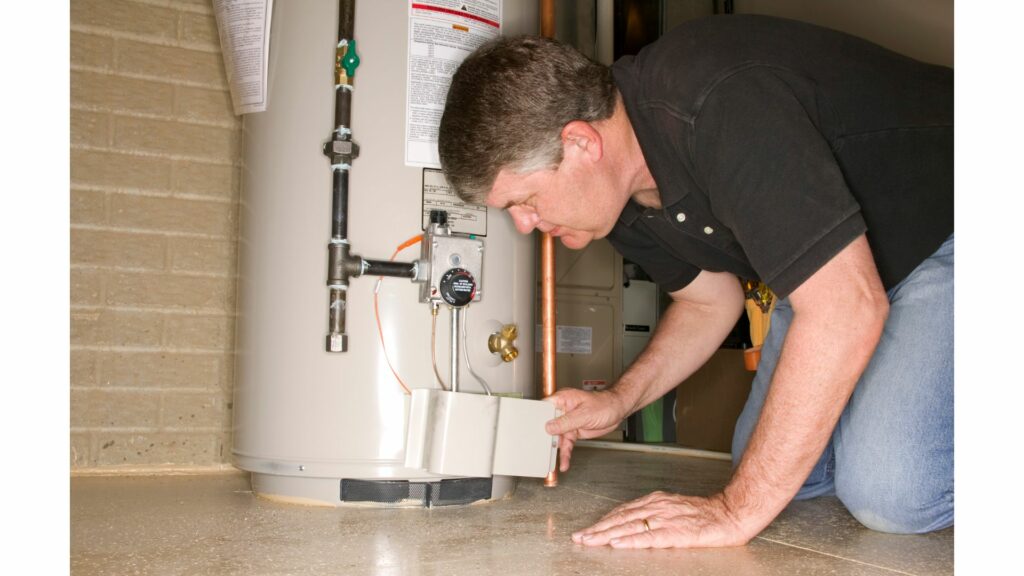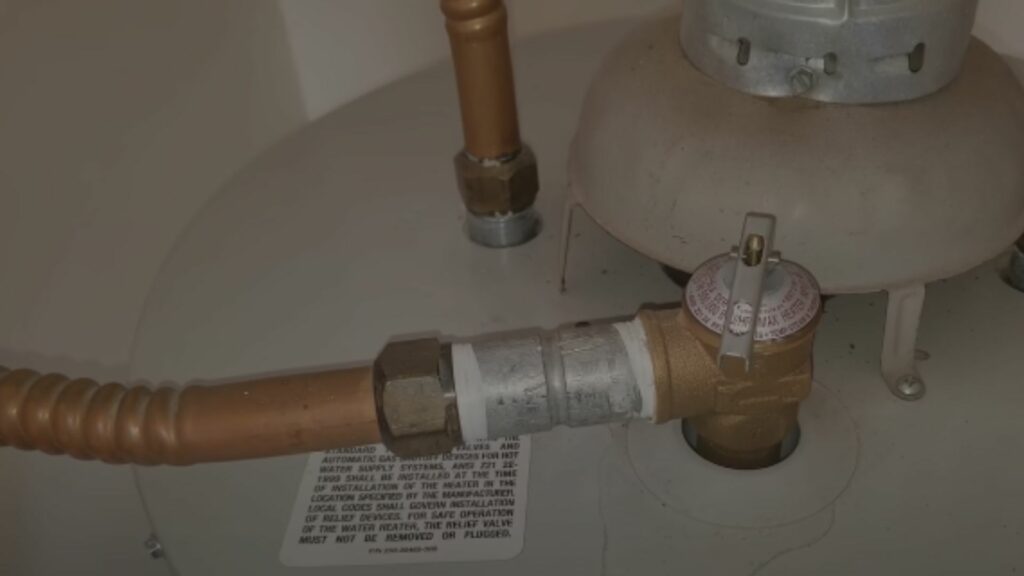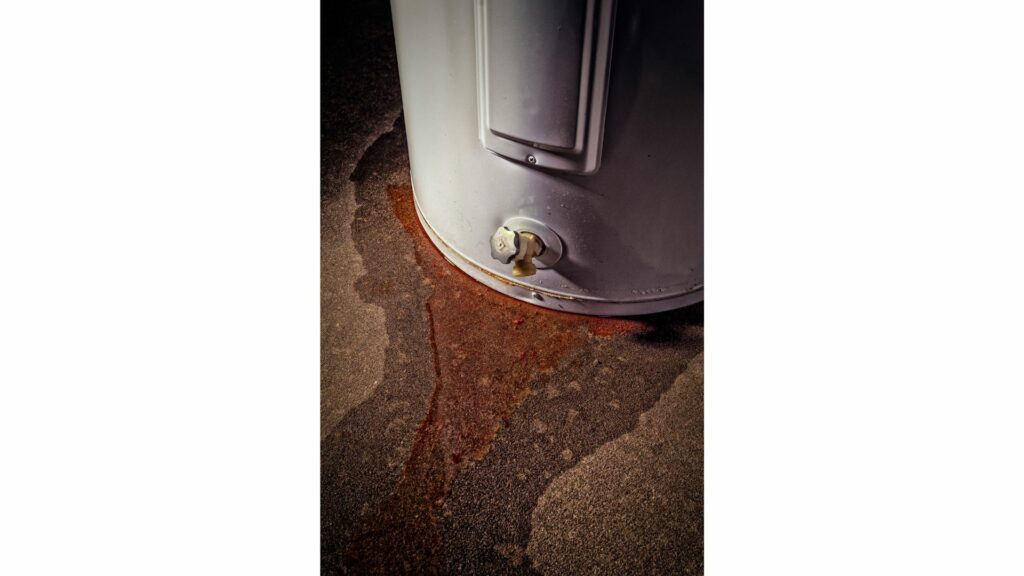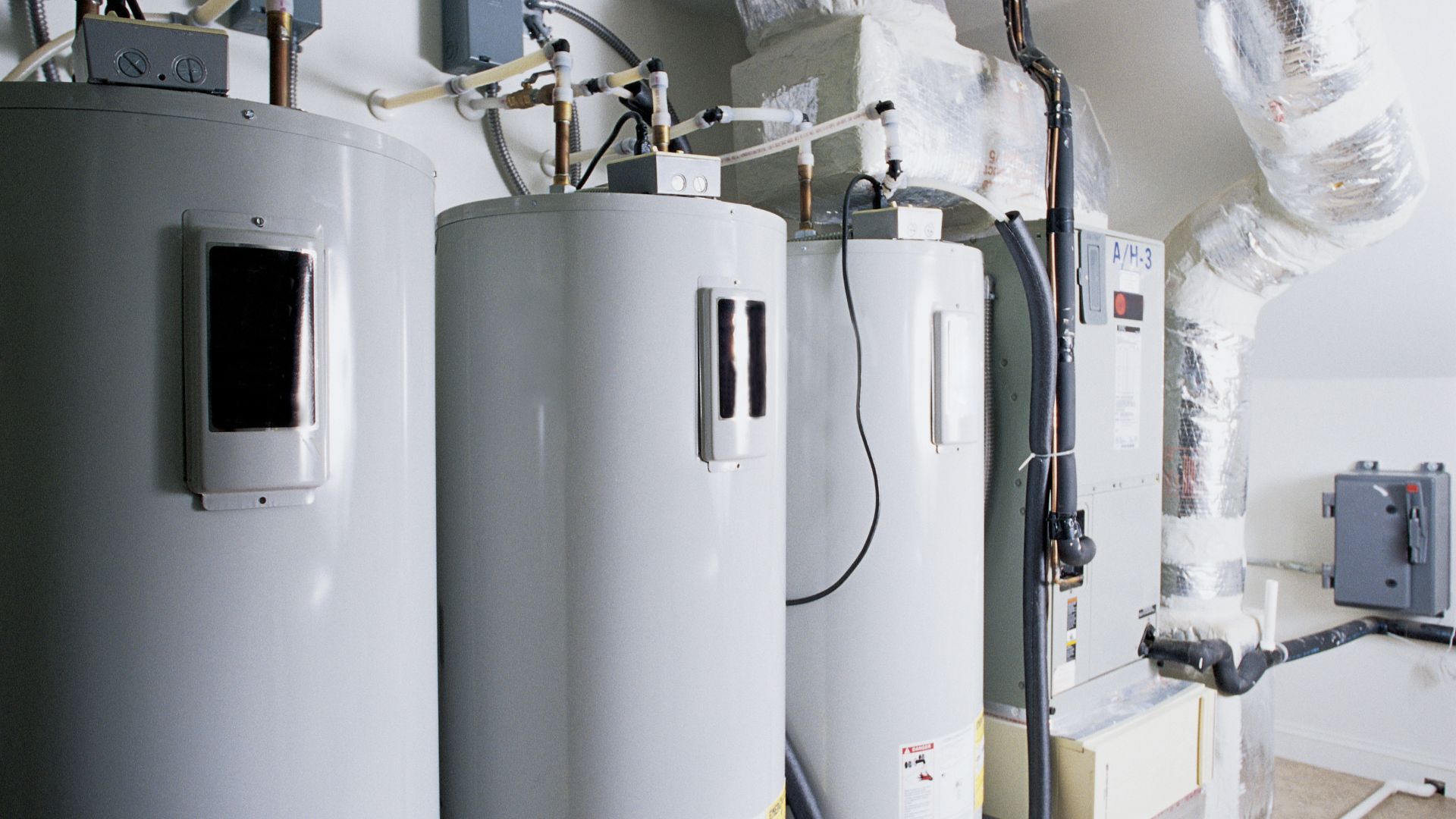Water heaters use too much power for you to ignore the strange noises they make. Fortunately, some of those noises have explanations and solutions, as this guide will soon show.
Why Is My Water Heater Making Noise?
1). Noise Due To Sediment Builds Up
Water heaters make popping sounds when sediment builds up. These are the minerals that accumulate at the bottom. The harder the water, the more sediment it will leave. The sediment will generate popping sounds as the bubbles escape the minerals.
But the noise is the least of your worries. The sediment will increase the time it takes to warm the water. It can also damage the heater.
Check this video to know how to flush a hot water heater to remove sediment
2). Leakage In Water Heater
Water heaters leak all the time. Fortunately, these leaks are easy to detect because they generate recognizable sounds, including hissing and sizzling as the water drips on the heating element and evaporates. Small leaks can evolve into more significant malfunctions unless you act quickly.
3). Leakage In Pipes
Some leaks occur in the piping as opposed to the heater. Shut all the taps off and place your ear on the pipe that connects to the water heater. It won’t take you long to detect the sound of running or dripping water.
4). Valve Noise
Your heater has a valve that relieves the temperature and pressure to keep them below the critical threshold. This valve will generate a screeching noise as it does its work. The screeching may get louder as the water’s temperature rises. However, it isn’t a cause for concern unless an inspection reveals a damaged valve.
5). Noise Due To Condensation
You hear crackling when condensation builds up on the burner. Like the screeching from the valve, this crackling noise shouldn’t worry you. It will fade in time.
6). Loose Components
Loose components on a heater can produce a distracting noise by vibrating. This is dangerous because, in some cases, the loose part is the heating element. A loose heating element is dangerous. You need technical assistance.
7). Pressure Change
Heaters will produce a ticking noise as the pressure undergoes a sudden change. This should only alarm you if it continues even though you adjusted the appliance’s pressure level. Some consumers use insulation to prevent unexpected pressure changes.
8). Loose Connections
Heaters are electronic appliances, and loose connections are common in electronic devices. They cause arcing, which is dangerous because arcing can ignite wires and other flammable objects in the vicinity. Loose connections are typically accompanied by crackling sounds.
Different Water Heater Noise And Troubleshooting Tips
If you want to troubleshoot your noisy heater, you should start by finding out where the sounds came from and what they mean:
Water Heater Making Hissing Noise – Why?
- You have a leak in the heater. Water is coming into contact with the heating element and evaporating, hence the hissing sound.
- Condensation is evaporating as it touches the heater’s hot surfaces.
- The temperature and pressure are too high, and the valve keeps opening to provide relief.
- People expect sediment to make a popping sound when it accumulates. But it can also generate hissing.
How To Fix It?

- I suggest you hire a technician. Even if you locate the leak, you can’t fix it. Some leaks are beyond repair. If you’re lucky, the drain valve is at fault. You can either tighten or replace this component to solve the problem.
- You can’t do anything about the condensation. It will form whenever cold water fills a heater with warm water. Ultimately, it isn’t dangerous.
- Inspect the valve. You can replace a defective valve. Otherwise, the hissing is part of this component’s work.
Water Heater Making Humming Noise – Why?
Humming is normal. You hear it when hot water moves through the system, leading to vibrations in the plumbing. Forbes agrees. They blame humming on vibrations. You should only worry if the heater has loose components.
How To Fix It?
Shut the heater off and inspect all the vibrating elements. Are they loose? Check every screw and bolt, and tighten whatever requires tightening. If the heater has hot water, wait for the water to cool. This is inconvenient because it can take hours. But the last thing you want is for scalding water to burn you because of an unexpected leak.
Water Heater Making Popping Noise – Why?
Popping sounds originate from the sediment at the bottom. Water deposits minerals in the tank. Those minerals will accumulate over time, creating a layer that traps water. That water will eventually escape as it boils, producing hissing and popping sounds.
Hard water deposits more minerals than soft water. This is why water-related appliances in regions with hard water wear out at a faster rate, especially dishwashers.
How To Fix It?
Clean the sediment. This means opening the drain valve and emptying the tank. Inspect the heating element. Is it damaged? You should consider getting a replacement. This is why technicians encourage consumers to resolve sediment buildup as soon as possible. It can do lasting harm.
Water Heater Making Loud Noise – Why?
- Mineral deposits have accumulated in the tank. Now the sediment is shifting and bubbling, producing loud rumbling and popping.
- When water floods the tank after being turned off, you will hear banging and hammering as the water rushes through the pipes. In some cases, this phenomenon can destroy the pipes, bursting them wide open.
- Sudden pressure changes have occurred in the water heater, producing loud ticking noises.
- Inlet and outlet valves are noisy as they perform their role. But they may generate more noise than expected once they develop defects.
How To Fix It?
- Install a water hammer arrestor to combat the banging that occurs when water rushes through the pipes and into the tank. This so-called water hammer is strong enough to break pipes. A water hammer arrestor will protect you from expensive plumbing repairs.
- If the temperature and pressure relief valve is screeching loudly, call a plumber. The plumber will find out why the pressure is so high. They can also inspect and replace damaged inlet and outlet valves.
- Tighten loose pipe straps.
- Drain the tank and remove the sediment.
Water Heater Making Whistling Noise – Why?

Water heaters have a valve that prevents the pressure from exceeding a critical threshold by opening and providing relief to the appliance. The heater will generate a whistling sound during this process. This is a good thing because it means the heater’s safety mechanism is working.
How To Fix It?
Whistling is a good thing because it shows that the valve is relieving pressure. However, you should hire a plumber to determine why the pressure is so high. They can look for sediment buildup, cracks in the tank, and defective valves. Excess pressure can lead to an explosion.
You can’t afford to ignore this problem. If the valves are fine and the pressure isn’t as high as you expect, check the drain valve. It can generate a whistling sound as air passes through the component.
Water Heater Making Banging Noise – Why?
Some people call this sound ‘Banging.’ Others say ‘Popping.’ The culprit is the same. You have a sediment buildup at the bottom, and now, bubbles are escaping the mineral deposit, producing what sounds like small explosions.
How To Fix It?
Your heater won’t explode because of the sediment. However, it can destroy the appliance. Don’t be surprised if the tank develops leaks. You can also expect your utility bill to increase. Clean the tank. Drain it and remove the sediment.
Water Heater making Dripping Noise – Why?

You have a leak in the heater. Check the area around the heater. Do you see a pool of water beneath the appliance? You should also listen for hissing and sizzling. Leaking water will evaporate as it comes into contact with the heater’s hottest sections, producing hissing.
How To Fix It?
Call a plumber. Sometimes, dripping sounds do not signify a leak. You can also blame dripping sounds on condensation in the vent pipe. A plumber can inspect the heater to determine whether or not it has a leak. They can also fix the leak.
Condensation isn’t a problem. The dripping sounds may annoy you, but the condensation is not a threat to you or the heater.
Water Heater Making Knocking Noise – Why?
The water heater has sediment at the bottom. Water has minerals that settle at the bottom. Those minerals will accumulate, along with any debris the water carries into the tank. You can blame the knocking on the hot air bubbles escaping from the sediment.
How To Fix It?
Sediment buildup poses a threat to the heater. Besides wearing out the heating element, the sediment can lead to leaks in the appliance. The knocking will continue until you flush the tank, a process that involves connecting a garden hose to the drain.
Water Heater Making Vibrating/Buzzing Noise – Why?
You hear buzzing when flowing water comes into contact with the heating element, generating vibrations. You may also detect vibrations because of a loose heating element. Loose elements can produce humming or buzzing sounds.
How To Fix It?
Tighten the heating element. Heating elements can come loose because of wear and tear or poor installation. Tightening the heating elements will eliminate the vibrations, making the heater’s operations more silent.
To be on the safe side, you should ask a professional to inspect the heater from top to bottom, just in case you have more loose components. You don’t lose anything by asking the plumber to tighten a few screws and bolts.
Water Heater Making High-Pitched Noise – Why?
If the sound is high-pitched popping, you have sediment buildup at the bottom, and the hot bubbles are escaping. If the noise is comparable to screeching, the valve is trying to relieve the pressure in the heater before it exceeds a critical threshold.
How To Fix It?
Are the valves open and closing properly? This is a question that only a professional can answer. They can inspect these components to determine whether or not they require replacement. Water will generate a high-pitched sound as it passes through the valves because they can’t open fully, and it has to squeeze through.
Water Heater Making Thump Noise – Why?
The knocking comes from the scales at the bottom. Minerals and debris have accumulated, trapping water. When the temperature spikes, the bubbles escape, producing knocking and thumping. You wouldn’t be wrong in comparing them to small explosions.
How To Fix It?
Flush the tank. The thumping will stop once you remove the sediment.
Water Heater Making Rumbling Noise – Why?
You hear rumbling when sediment accumulates in the tank. Minerals and debris typically settle at the bottom, where they build up over time, creating a layer that traps water. You hear rumbling because the trapped water is boiling and shifting the sediment as it escapes.
How To Fix it?
Flush the tank.
Water Heater Making Noise After Power Outage – Why?
Electric heaters don’t make noise in the absence of power. The noise you hear is probably water flowing in the pipes. If the water was hot by the time the power went off, you can blame the sounds on the sediment in the tank.
How To Fix It?
If the noise originates from the pipes, you don’t have to worry. But if the heater has a layer of sediment, you should clean it by flushing the tank.
Related Post:

